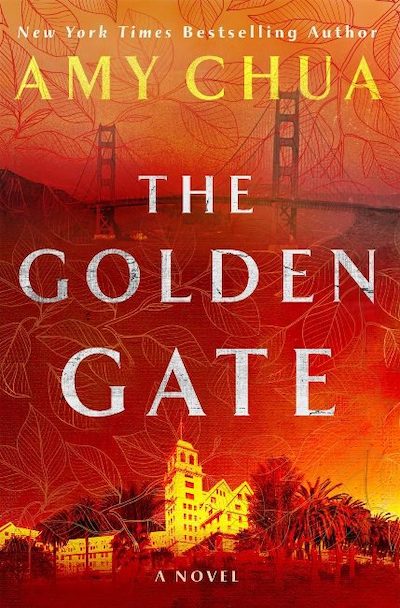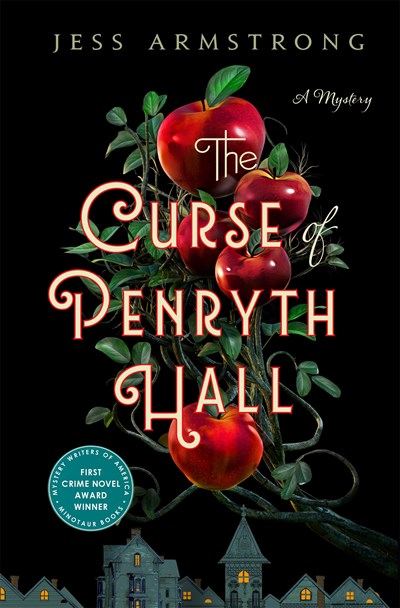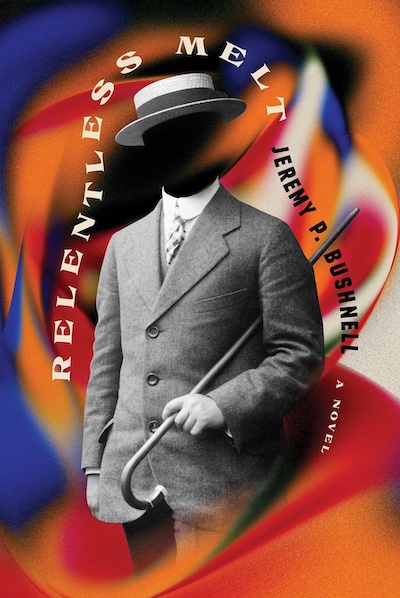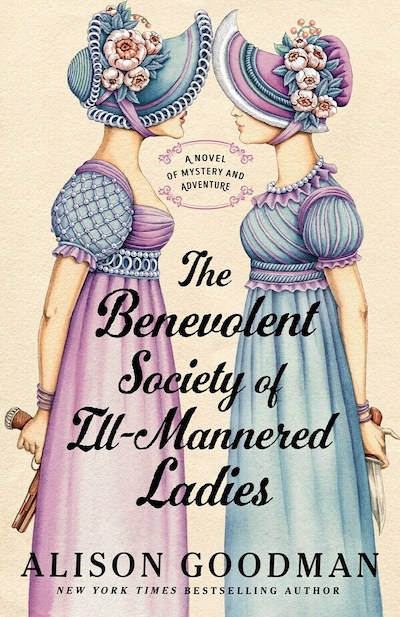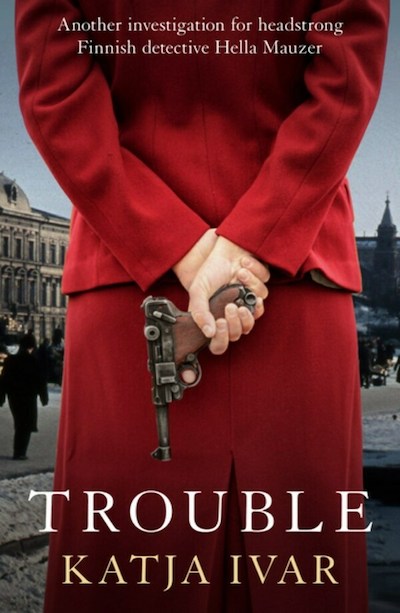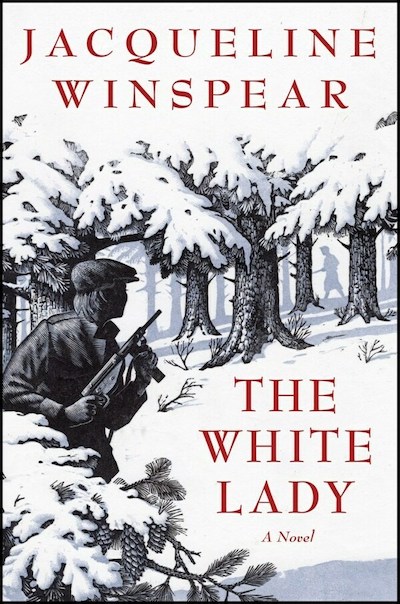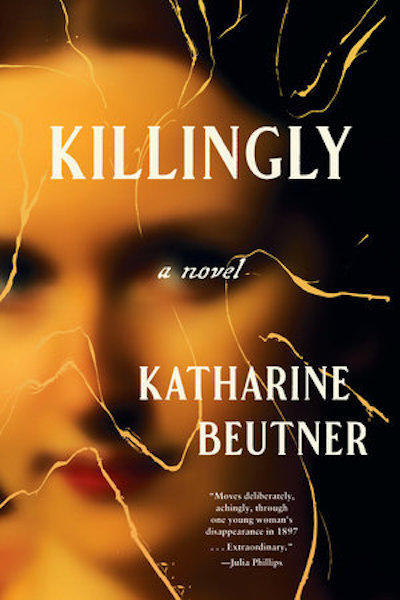I’ll be 51 this Sunday and I read two books a week. It adds up, and this is the best I’ve ever read. As it’s very far from an ordinary read , I can’t write a review as I normally would. The plot and characters are fantastic, compelling, memorable, surprising…but the book is more than anything a magic box. Trussoni also has an unsettling ability to mention everything of interest and everything that has come up lately. I thought about making a website that would emulate the ability of a pile of transparency sheets to create a composite image, and that process is mentioned. I learned about the idea of the singularity this week–the possible future time when technological growth becomes uncontrollable–and it’s there. A central theme is a kind of mythical creature I had mentioned to me recently. And the characters, and of course the author, see into the reader in other ways, with the bizarre turns in the tale perfectly allowing every nuance of the strange folks within to emerge, but also startling the consumer of this sorcery on every page. What’s the book about? Everything, but there’s a framework. A puzzle maker, who, through a brain injury, gains the remarkable ability to see “that particular kind of order that [distinguishes] a puzzle from everything else on the planet,” meets a prisoner who hands him a drawing, a puzzle he can’t even begin to unlock. It leads him to letters and a diary that describe a dangerous quest to “lift the veil between the human and the Divine and [stare] directly into the eyes of God.” There’s homework before you read this so that you can be in the right frame of mind to take in its wonder. Read Brian Selznick’s The Invention of Hugo Cabret, Shaun Tan’s The Arrival, Stephen King’s Pet Sematary, Aimee Pokwatka’s Self Portrait with Nothing, and Ray Kurzweil’s The Singularity is Near. And then clear a weekend.
Historical
Depression-era San Francisco’s Claremont hotel is a wonderful playground for sisters Isabella and Iris Bainbridge Stafford, six and eight years old, respectively, who roam through it while their wealthy mother plays tennis. The luxurious hotel has a seven-story-long spiral slide that guests can use as a fire escape, one that Iris might think she’s entering to play when she fatally plunges down a laundry chute. Years later, tragedy visits the hotel again—many say it’s been cursed all along—when Presidential candidate Walter Wilkinson is found murdered in his room (murdered twice, in fact—the book explains all). Police officer Alejo Gutiérrez, passing as Al Sullivan, is the slightly jaded, but still caring, investigator who must sift through the jumble of rumors, racism against Asian hotel workers and city residents, and secretive behavior by rich characters who think the law doesn’t apply to them in his efforts to discover who killed the politician. This saga—the story has as many twisting corridors as the hotel–allows Chua to dig deep into the privileges and invisible barriers at work in any haves-and-have-nots meeting, with memorable results. Pair this with the information on the treatment of San Francisco’s Chinese citizens in David Quammen’s excellent Spillover for a sobering and enlightening view of that community’s history.
Devil-may-care heiress Ruby Vaughn has just sent the latest of her boss’s housekeepers running, with the woman on the way out muttering something about “a den of sin and vice.” Ruby does like to knock back a few drinks and scarcely cares about propriety, having planned, while a nurse during the Great War, to set up home with her fellow nurse and lover, Tamsyn. When that antiquarian-bookseller boss announces, “I’ve been thinking,” Ruby knows it doesn’t usually bode well, but this time there’s an upside. The trip he wants her to undertake, delivering mysterious books to a Ruan Kivell in Cornwall, brings her back in contact with Tamsyn, now Lady Chenoweth. Penryth Hall, Tamsyn’s miserable home with her abusive husband, only makes Ruby long all the more for the life she could have had with Tamsyn. When awful Lord Chenoweth is found dead, his body slashed as though by animals, the area’s depths of superstition and past misdeeds begin to reveal themselves, as do the powers of Ruan, the local Pellar, a powerful folk healer. Ruby refuses to believe in the curse that the locals say Chenoweth perished from, pursuing instead the help of the fledgling science of forensics to figure out what happened and restore Tamsyn’s happiness. This debut won the Mystery Writers of America/Minotaur First Crime Novel Competition, a well-deserved honor for a book whose gutsy main character and immersive world-building will remind readers of Margaret Dove in Evie Hawtrey’s And By Fire.
A supernatural mystery—part Stranger Things, part Enola Homes, but very much itself—set in 1909 Boston. Young Artie Quick, a Filene’s basement “shopgirl” by day, is fascinated by criminal behavior and signs up to study Criminal Investigation at the YMCA’s Evening Institute for Men. One problem? Artie is a young woman, and to pass, she has to adopt male drag and attempt to alter her voice. While she still lives with her working-class family, most of her time she’s at well-off Theodore’s digs—her charming if awkward best friend. Theodore is as obsessed with magic as Artie is with crime, and the two take on a case: the investigation into unnatural screams heard at night in the Boston Common by homeless men and petty criminals. What seems like a minor quest ends up taking the two on a sojourn that reveals the abduction of young women, a cover-up by city officials, and the existence of a spirit underneath the city, ready to wield even greater destruction. This book is way, way over the top—and is sure to delight its intended audience. Artie grows to love her menswear, and seems to love women as well, and her embrace of her queerness is just one of the many transformations in the book. For young adults on up.
Edgar Award-winning Hirahara’s first novel in this series, Clark and Division, was a New York Times Best Mystery Novel of 2021, among many other accolades; this follow-up will please fans with more thoughtful, poignant, and historically accurate investigations of Japanese American life after World War II.
After leaving the Manzanar camp in the first book and moving to Chicago, nurse’s aide Aki Nakasone and her parents have returned to California, where they prospered before being imprisoned, and where her father and others desperately hope to reclaim their land and businesses. Aki’s husband, Art, gets work at the Rafu Shimponewspaper (where Hirahara has worked), but his after-work drinking with other journalists leaves Aki feeling she saw more of him when he was in the army. She’s distant from her parents, too, despite sharing their home, with Hirahara portraying the generational difference as part of the estrangement that is the central theme of the book. Her characters raised in the camps display a kinship that transcends other bonds and leaves them markedly and painfully adrift from their parents.
When Art’s army buddy Babe goes missing after his father’s battered body is found, Aki sets out to find Babe and restore balance to her own unsettled life. This quest sees her explore elements of postwar life such as the competition between returning Japanese and Black Americans for housing and the effects of “shell shock” (PTSD) on a community. A must-read.
An absolute delight, wonderfully written and with enough plot to keep the reader zooming through the book then quickly asking for more. Regency London is the setting and the twin Colebrook sisters, Lady Augusta (Gus) and Lady Julia, are our amateur detectives. Unusual for women of this period, they were left with personal incomes by their late father, allowing them independence and the ability to thumb their noses at their useless younger brother. In their early forties and unmarried, the two can’t bear the injustices they see heaped on the women around them, and Gus is determined to do something. When word reaches them that a friend’s goddaughter has been locked away by her husband with the intent to kill her—as she’s unable to have children—the sisters head off to spring her from her country house. Along the way, they pair up with an old interest of Gus’s, Lord Evan Belford, back from exile in Australia—it’s a long story—and hotter than ever. What’s unusually successful about this book is that instead of focusing on one case, the sisters take on a series, including one case in which Gus, disguised as a man, infiltrates a brothel. While their identities as detectives grow, several themes emerge, including Julia’s struggle with breast cancer, their need to surrender their home to their brother and his fiancé, and, of course, what to do with Lord Belford. The Regency era, feminism, and romance all work together to create a book that will delight many. And how about that cover?
Hella Mauzer, 29, is both very much of Finland—she’s a dour private investigator who seems made from her country’s six-months of darkness —but completely not what her fellow 1950s Finns want her to be. Put flowers under your pillow on midsummer night and you’ll dream of your future fiancé, they hint, with marriage and motherhood then all but guaranteed. Hella wants none of it. She keeps both her ex-boyfriend, who can’t grasp that things are over, and her new, interested neighbor at arm’s length while immersed in two investigations. One is a favor to her father’s former secret-police colleague: a background check on the prospective head of Helsinki’s homicide squad. The other is more personal. Hella is desperate to find out who killed her parents, sister, and nephew, all of whom died when hit by a truck when Hella was a teen. Getting the courage to read the police file on her family’s deaths is a big step, and one that immediately leads her to suspect that there was much more to the tragedy than an accident. The background check is far from straightforward either, adding up to a tale that brings to mind Game of Thrones, with all that story’s evil and power-hungry machinations. If Scandinavian mysteries are your thing, try this, as well as Ann-Helén Laestadius’s Stolen, and Joachim B. Schmidt’s Kalman for great stories that take place outside the more common urban settings in Sweden and Denmark.
Jacqueline Winspear, author of the hugely popular mystery Maisie Dobbbs series set in England during WWII, here moves into the post-war world with a new heroine. Elinor White has had a lifetime of espionage. Born in Brussels, daughters of a British mother and a Belgian father who died in the early years of the WWI, she and her older sister spent WWI in Brussels, working as trained spies, going so far as derailing German supply trains in the dead of night. By age 14, already an expert markswoman, Elinor moves with her family to England. But by the beginning of WWII, she’s back in the espionage game, although eventually a terrible injury behind enemy lines sends her back to England and a lengthy hospitalization. When the war finally ends, she moves to the country, promising to forget the past and live a life of monotony. But when the lives of a neighboring family are threatened—they too are seeking anonymity—Elinor becomes involved, facing the country’s largest crime family head on. Throughout, readers will sense that Elinor is keeping something from us, and when her secret is finally revealed it brings about a type of healing. As always, Winspear is brilliant at bringing us into the past and into the lives of women, so often left out of accounts of war efforts. Winspear fans will find much to enjoy here, as will other readers of historical fiction.
A haunting tale set in the rarefied world of Mount Holyoke college, the oldest of the Seven Sisters, and inspired by a true story. It’s 1897 and Bertha Mellish, a quiet and rather odd junior, has gone missing, last seen walking into the woods that surround the college. As days go by, her disappearance draws to campus her sister and father—an enfeebled minister from Killingly, Connecticut—the police, and a private investigator hired by the family. But the one person who likely knows what happened to Bertha is Agnes Sullivan, and she’s being incredibly circumspect. Agnes is poor and Irish, a promising scientist, and Bertha’s closest friend…or lover? At a time when women in an environment like Mount Holyoke could establish romantic relationships, and display affection, Agnes and Bertha were such a couple—in fact, they planned after graduation to live in a Boston Marriage, the name for two women who set up a household together. So why is Agnes so tight-lipped? Rape, incest, abortion, vivisection, and insanity swirl around the narrative, as does the imagining of the precarious lives of women, even when privileged. Beutner does a wonderful job of pulling the reader into this world then locking the door behind us, keeping us engaged until the very last page.
The walled-off feeling of loneliness in a crowd pervades the pages of Hlad’s piercing historical thriller. Based on a fascinating and little-known true story of World War II, the tale sees librarians from New York Public Library sent throughout Europe to gather materials published by axis powers, photograph it, and send it via microfilm (the thumb drive of its day) back to New York to aid in overthrowing Hitler. Our hero is Maria Alves, a Portuguese American who, due to her parents’ jobs as newspaper photographers, lived all over the world as a child and speaks six languages. Sent to a neutral—but still dangerous—Portugal to scour bookstores for war-relevant information, her cover is that she is working for the Library of Congress to gather materials that are in danger of being destroyed in the conflict. Under no circumstances is she to engage in spying, but that undertaking soon falls by the wayside as the extent of the horror in nearby occupied France becomes apparent. Also affected by the French occupation is Tiago Soares, a Lisbon bookseller whose Grand-père and Grand-mère in Bordeaux run an operation that smuggles Jews to Lisbon, where increasing crowds of penniless, paperless refugees await passage to the United States. Hlad’s immersive portrayal of wartime Lisbon and its inhabitants, of the loneliness caused by the terror that anybody at any time could be an informant, plus his captivating thriller/romance tale make this a must-read, especially for fans of Kate Quinn’s The Rose Code.


